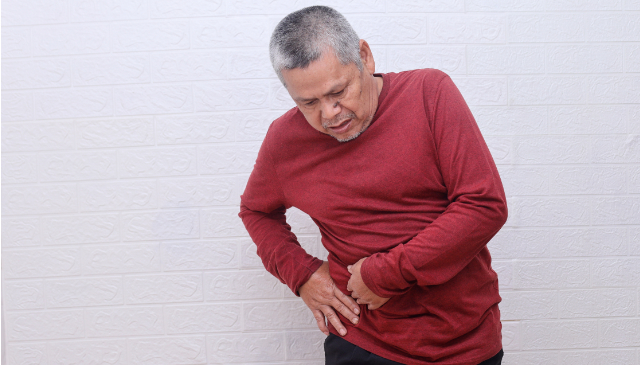News
Ending the Myths of Hip Pain and Finding Help From Physical Therapy

If you've ever experienced a deep, aching pain on the outside of your hip, especially when walking, climbing stairs, or even lying on your side, you might be dealing with gluteal tendinopathy. This common but often misunderstood condition affects the tendons that connect the gluteal muscles of the buttocks to the hip bone, and it tends to cause persistent pain that limits movement.
Many people are told that this discomfort comes from inflammation or a condition called bursitis, leading them to believe that rest, ice, or anti–inflammatory medications are the best solutions. Others may be advised to get corticosteroid injections or even consider surgery.
But what if those recommendations were based on outdated information? In a recently published study, researchers reviewed the latest evidence to bust many long–standing myths about gluteal tendinopathy and determine which treatments are truly most effective. They found that physical therapist–led education and exercise–not rest or injections–are the most effective treatments for this condition. Instead of masking symptoms or avoiding movement, targeted physical therapy helps restore tendon health, reduce pain, and prevent future flare–ups. So, if you've been struggling with persistent hip pain, it may be time to take charge of your recovery with science–backed physical therapy techniques.
Breaking Down Some of the Most Common Gluteal Tendinopathy Myths
For the study, researchers reviewed the latest evidence to clear up some of the most common myths about gluteal tendinopathy. They identified nine myths and provided explanations for why they are no longer accurate, with the goal of giving healthcare professionals the most up–to–date information on how to best diagnose and treat this condition. Below are some of the highlights:
- Myth: Gluteal tendinopathy only affects older women
- Reality: While it's more common in post–menopausal women, gluteal tendinopathy can also affect men and younger people.
- Myth: You need an MRI to diagnose and treat gluteal tendinopathy
- Reality: Imaging tests–like an MRI–can be helpful, but they often show problems even in people without pain; therefore, it's important to combine imaging results with a physical examination to figure out the best treatment.
- Myth: Gluteal tendinopathy will go away on its own
- Reality: While some people do recover without treatment, many continue to have pain; therefore, it's best to get treatment early to avoid long–term problems.
- Myth: Stretching the iliotibial band'a thick band of tissue in the knee–can alleviate symptoms
- Reality: There's no evidence that a tight iliotibial band causes gluteal tendinopathy, and stretching it may actually make the pain worse.
- Myth: Corticosteroid injections are the best first treatment for this condition
- Reality: Injections may provide short–term relief, but they're no better than other treatments in the long run; exercise and education have been shown to be more effective.
- Myth: The clamshell exercise, a popular exercise that strengthens the gluteus muscles and other hip abductor muscles, is the best exercise for gluteal tendinopathy
- Reality: This exercise doesn't work the hip muscles enough and can make the pain worse; weight–bearing exercises, like squats, are better.
- Myth: If you have a tendon tear, you need to have surgery
- Reality: Most tendon tears do not require surgery; physical therapy is often effective, even for patients with a tear.
Give Us a Call to Begin Your Journey to a Pain–Free Lifestyle
This study makes it clear: outdated treatments like injections and rest aren't the answer for gluteal tendinopathy. Instead, a structured program led by a physical therapist that combines education and exercise is the key to long–term relief.
If you are struggling with hip pain, our physical therapists will:
- Perform a thorough evaluation to accurately diagnose your condition
- Develop a personalized treatment plan that includes education, exercise, and load management
- Help you manage your pain and get back to your favorite activities
Don't let hip pain control your life. Contact us today to schedule an appointment and take the first step toward recovery. Or to learn more about gluteal tendinopathy, read the featured study here.
May 8, 2025
Back to Health Blogrecent posts
- Shoulder Pain Holding You Back? Finding Lasting Rotator Cuff Relief
- Physical Therapy May Help Against the Common Causes of Hip Pain
- Stretching Could Be A Game-Changer for Chronic Pain Relief
- Easing the Burden of Tension Headaches With Physical Therapy
- Got Heel Pain? New Study Reveals How to Outsmart Plantar Fasciitis
- How Physical Therapy Can Tame Whiplash-Related Symptoms
- Exercise Therapy May Provide Relief for Chemotherapy-Related Issues
- Unlocking Relief From Elbow Pain With Hands-On Therapy and Exercise
- Are Deep Squats Really as Bad as We Think?
- Reclaiming Your Grip: The Power of Hands-On Therapy for Tennis Elbow